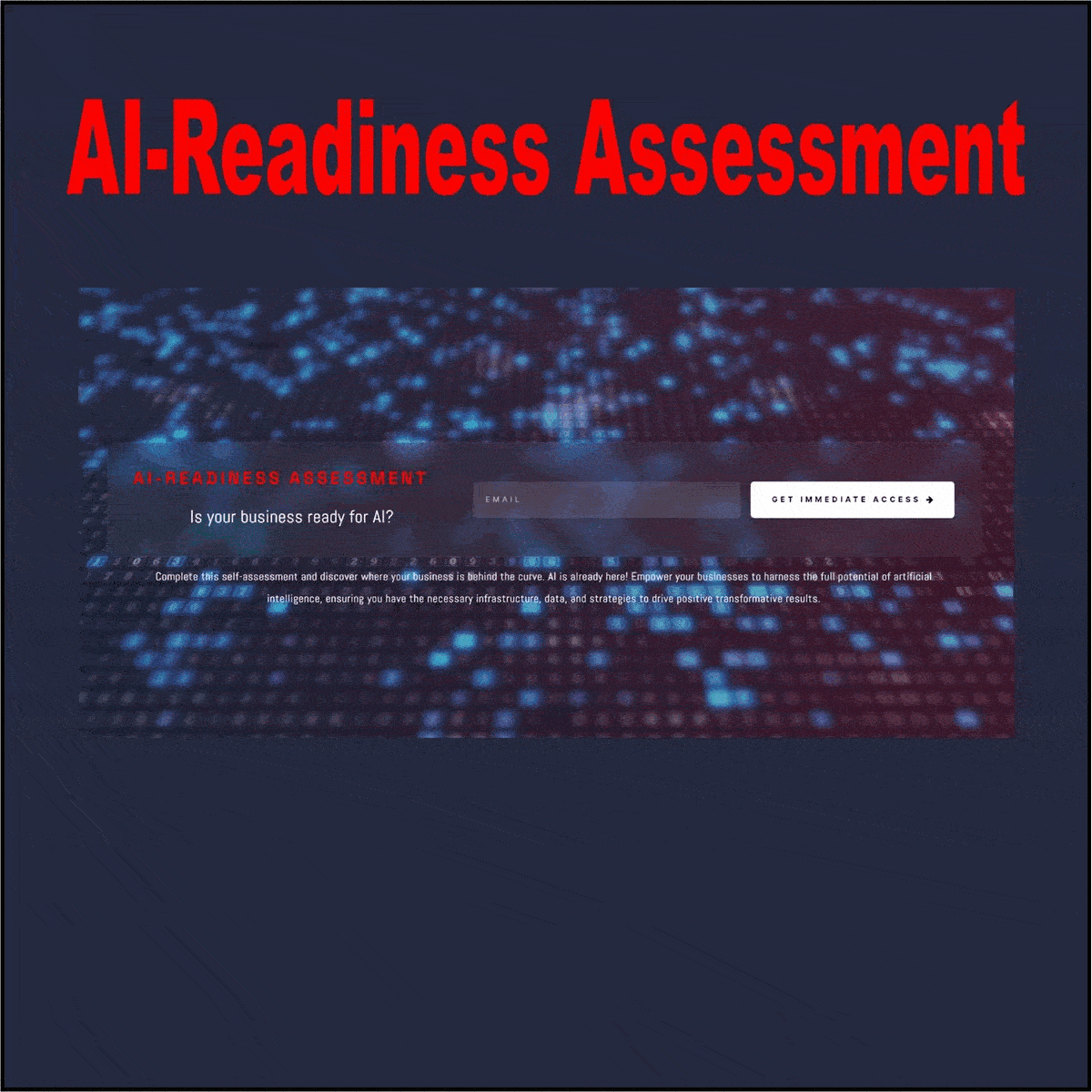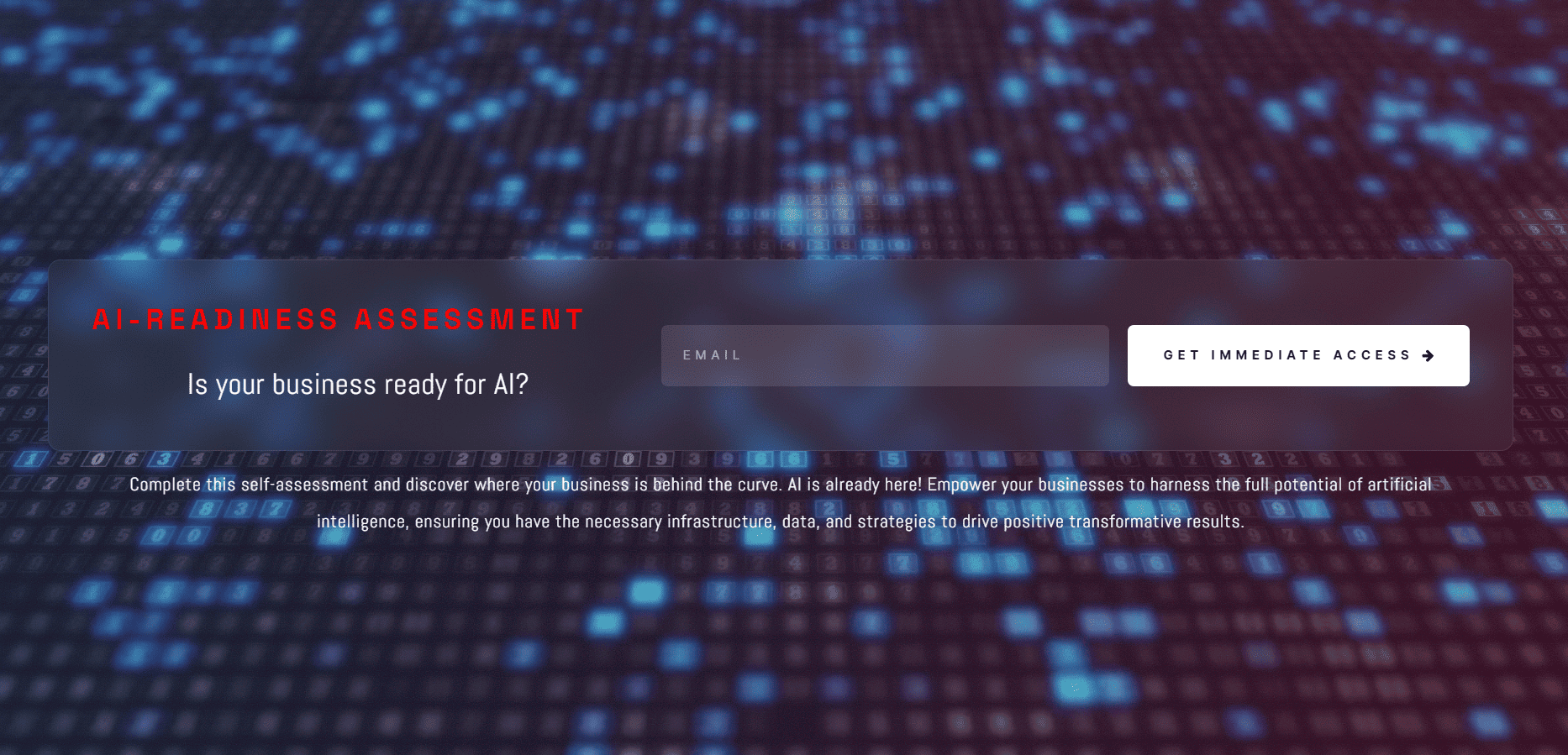AI Readiness for Businesses: The Importance of Self-Assessment
Artificial Intelligence (AI) is no longer a futuristic concept but a tangible tool driving business innovation. However, diving headfirst into AI adoption without adequate preparation can lead to inefficiencies and unmet expectations. Hence, “AI readiness for businesses” is an essential step before embarking on this transformative journey. Conducting an AI-readiness self-assessment empowers companies to harness the full potential of AI while ensuring that they are well-equipped to face the challenges it brings.
1. Understanding the Current State of AI Integration
Before businesses can embrace AI’s potential, they must first understand where they stand. An AI-readiness self-assessment provides a clear snapshot of the company’s current technological infrastructure, workforce skills, and data management capabilities. This introspection ensures that businesses do not overlook existing assets that can be optimized for AI integration or identify gaps that need to be addressed.
2. Aligning AI Goals with Business Objectives
For AI to be genuinely transformative, it must align with a company’s broader objectives. A self-assessment helps businesses clarify their goals concerning AI. Whether it’s improving customer experience, optimizing supply chains, or enhancing data analytics, having a clear vision ensures that AI projects are not just technologically advanced but also business-relevant.
3. Risk Management and Ethical Considerations
AI systems are powerful but come with their set of challenges, from potential biases in algorithms to data privacy concerns. By conducting a readiness assessment, businesses can identify potential risks early on. This proactive approach ensures that companies can put in place robust ethical guidelines and risk mitigation strategies, ensuring AI deployment that is both efficient and responsible.
4. Cost Evaluation and ROI Estimation
Investing in AI can be capital-intensive. An AI-readiness assessment helps businesses evaluate the potential costs involved, from technology procurement to workforce training. By juxtaposing these costs with expected returns, companies can make informed decisions, ensuring that their AI investments yield positive ROI.
5. Preparing the Workforce
AI is as much about people as it is about technology. An AI-readiness self-assessment will shed light on the current skills and capabilities of the workforce. Such insights are invaluable for planning training programs, hiring new talent, or restructuring teams to ensure that human expertise complements AI capabilities.
6. Building a Collaborative AI Ecosystem
AI is not an isolated tool but part of a broader digital ecosystem. A thorough assessment will help businesses identify potential collaboration opportunities, be it with technology vendors, academic institutions, or industry peers. Such collaborations can significantly accelerate AI adoption and innovation.
Ready to do your AI readiness self-assessment?
“AI readiness for businesses” is not just a catchphrase but a crucial preparatory step in the AI adoption journey. By conducting a comprehensive self-assessment, businesses can ensure that they are not only technologically ready but also strategically positioned to leverage AI’s transformative potential to its fullest. In an era where AI is set to redefine business paradigms, being AI-ready is not just an advantage but a necessity.
Click here to begin: https://aireadinessassessment.carrd.co/ – and as always, if we can be of assistance, please feel free to reach out.
 ~ Bella
~ Bella
